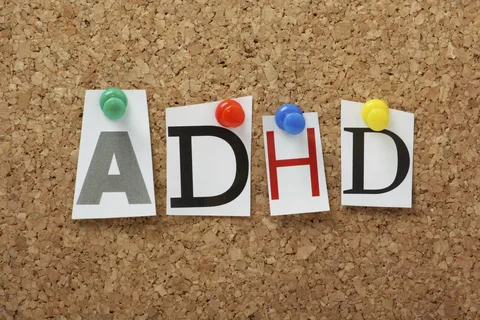ADHD and Nutrition: The Impact of Diet on Symptoms
Attention Deficit Hyperactivity Disorder (ADHD) is a neurodevelopmental condition that affects both children and adults, characterized by difficulties in attention, hyperactivity, and impulsiveness. While ADHD is primarily managed with medication and behavioral therapies, there is growing interest in how diet and nutrition can influence its symptoms. This article explores the relationship between diet and ADHD, highlighting foods and nutrients that may impact symptoms positively or negatively.
Understanding ADHD: A Brief Overview
ADHD manifests differently in individuals but generally involves challenges such as:
- Inattention: Difficulty sustaining attention, being easily distracted.
- Hyperactivity: Excessive movement, fidgeting, inability to sit still.
- Impulsivity: Acting without thinking, difficulty waiting turns.
These symptoms can affect academic, social, and occupational functioning. Treatment typically involves stimulant medications like methylphenidate and behavioral interventions aimed at improving focus, organization, and impulse control.
The Role of Nutrition in ADHD Management
Nutrition plays a crucial role in overall health and may influence ADHD symptoms through several mechanisms:
- Impact on Brain Function: The brain requires specific nutrients for optimal function, including neurotransmitter production and regulation. Imbalances in neurotransmitters like dopamine and norepinephrine are linked to ADHD symptoms.
- Inflammation and Gut Health: There is emerging evidence suggesting a connection between gut health, inflammation, and ADHD. Certain dietary patterns can influence gut microbiota, affecting inflammation levels and potentially impacting ADHD symptoms.
- Nutrient Deficiencies: Deficiencies in key nutrients such as omega-3 fatty acids, zinc, iron, magnesium, and vitamins B6, B12, and D have been associated with ADHD symptoms. Correcting these deficiencies through diet or supplements may have beneficial effects.
Key Nutrients and Their Impact on ADHD
1. Omega-3 Fatty Acids
Omega-3s are essential fats found in fatty fish (salmon, mackerel), flaxseeds, chia seeds, and walnuts. They are critical for brain health and have been studied for their potential to reduce ADHD symptoms, particularly inattention and hyperactivity.
2. Zinc
Zinc is important for neurotransmitter function and cognitive performance. Foods rich in zinc include oysters, red meat, poultry, beans, nuts, and whole grains. Zinc supplementation has shown mixed results in improving ADHD symptoms, but adequate intake is crucial for overall health.
3. Iron
Iron deficiency is common in children with ADHD and may exacerbate symptoms such as inattention and cognitive deficits. Good sources of iron include red meat, poultry, beans, lentils, and fortified cereals. Iron supplementation should be guided by a healthcare provider to avoid excess.
4. Magnesium
Magnesium plays a role in neurotransmitter function and muscle relaxation. Some studies suggest that magnesium supplementation may reduce hyperactivity in children with ADHD. Foods high in magnesium include spinach, nuts, seeds, whole grains, and legumes.
5. Vitamins B6, B12, and D
B vitamins are essential for brain function and mood regulation. Vitamin B6 is involved in neurotransmitter production, while B12 and D are important for overall neurological health. Foods like fortified cereals, meat, fish, dairy, and sunlight exposure (for vitamin D synthesis) contribute to adequate levels.
Dietary Factors That May Worsen ADHD Symptoms
While specific nutrients can benefit individuals with ADHD, certain dietary factors may exacerbate symptoms:
- Sugar and Artificial Additives: High intake of refined sugars and artificial additives (like food dyes and preservatives) has been linked anecdotally to increased hyperactivity and impulsivity in some individuals.
- Food Sensitivities and Allergies: Some children with ADHD may have sensitivities to certain foods (e.g., gluten, dairy) that could exacerbate symptoms. Identifying and eliminating trigger foods may help in managing ADHD.
Practical Dietary Recommendations for ADHD Management
- Emphasize Whole Foods: Encourage a diet rich in fruits, vegetables, whole grains, lean proteins (including fatty fish), nuts, and seeds.
- Limit Processed Foods: Minimize intake of processed foods high in sugars, artificial additives, and trans fats.
- Consider Elimination Diets: In cases where food sensitivities are suspected, consider elimination diets under the guidance of a healthcare professional.
- Supplementation: Discuss with a healthcare provider about the need for supplements like omega-3 fatty acids, multivitamins, or specific nutrients based on individual dietary intake and health status.
- Meal Timing and Structure: Regular meals and snacks can help stabilize blood sugar levels, which may impact attention and behavior.
Conclusion
While diet alone cannot cure ADHD, evidence suggests that nutrition plays a significant role in managing symptoms and promoting overall health. By emphasizing nutrient-rich foods and minimizing potential triggers, individuals with ADHD and their caregivers can potentially enhance treatment outcomes and improve quality of life. Further research is needed to better understand the complex relationship between diet, nutrition, and ADHD, but current evidence supports the importance of a balanced diet tailored to individual needs. Working closely with healthcare providers and nutrition experts can help create personalized dietary strategies to support optimal ADHD management.


